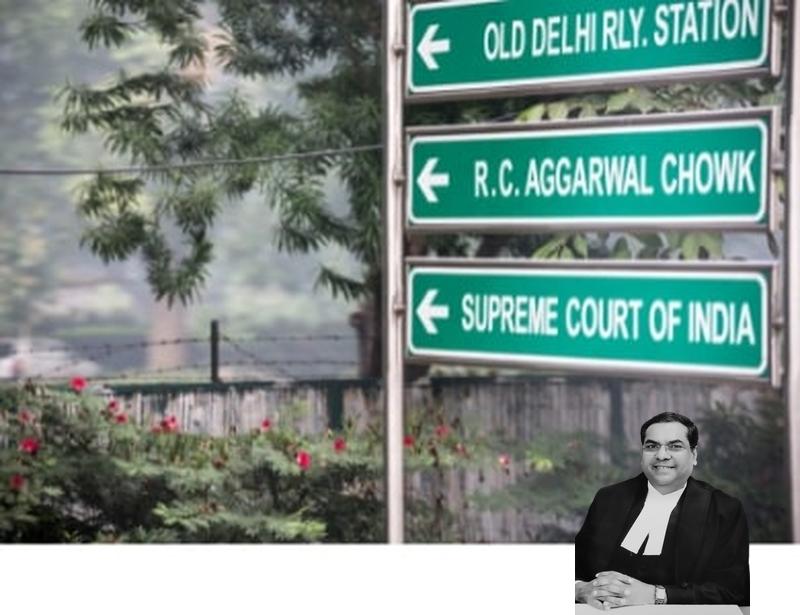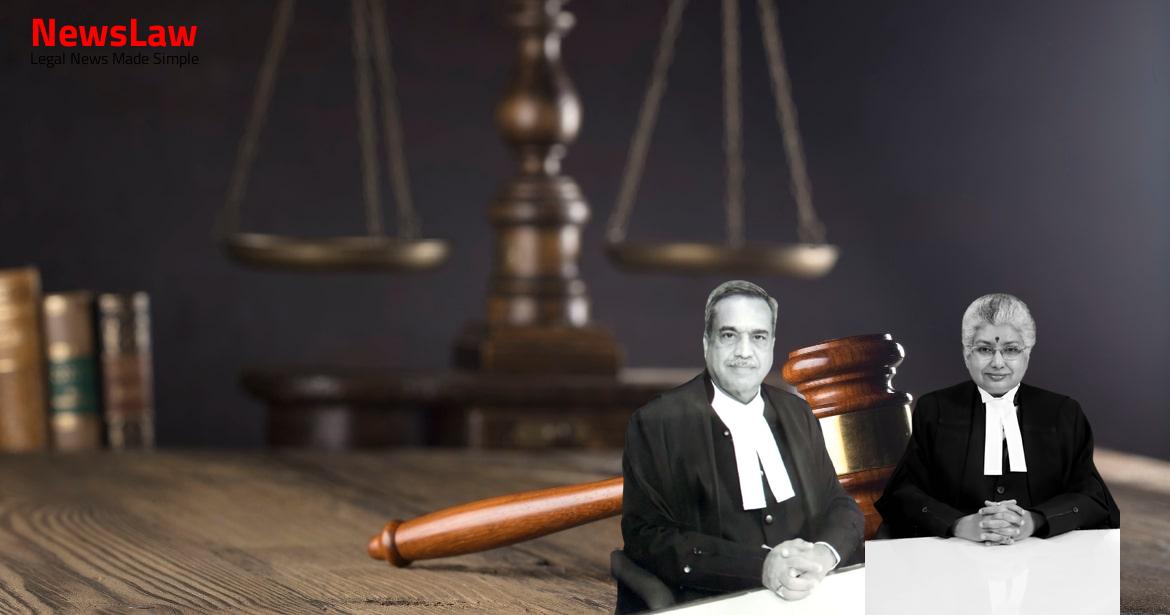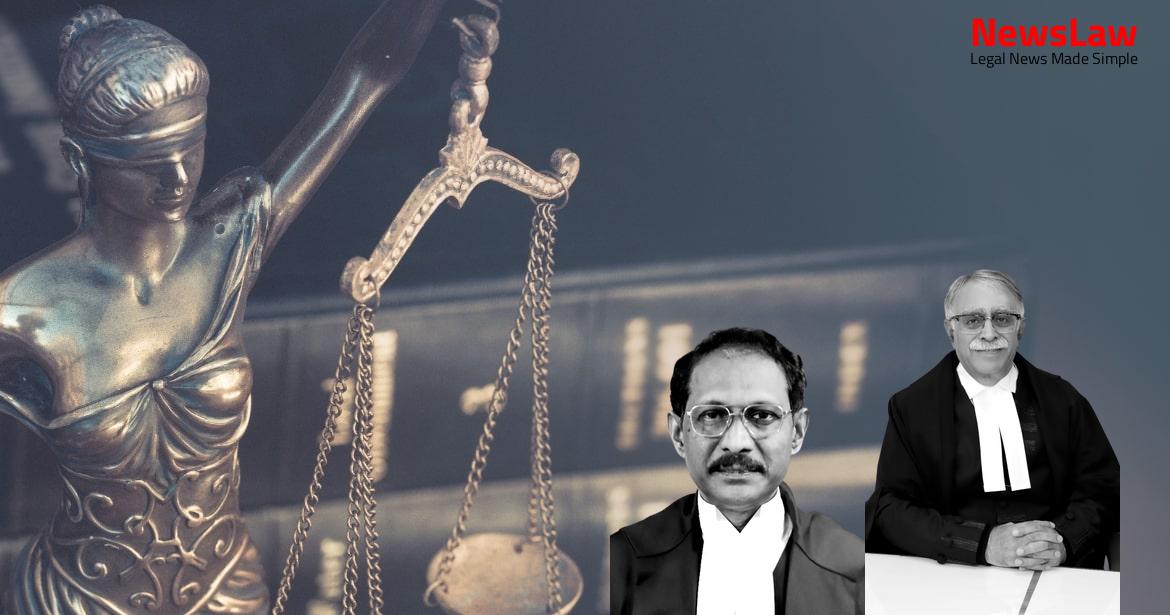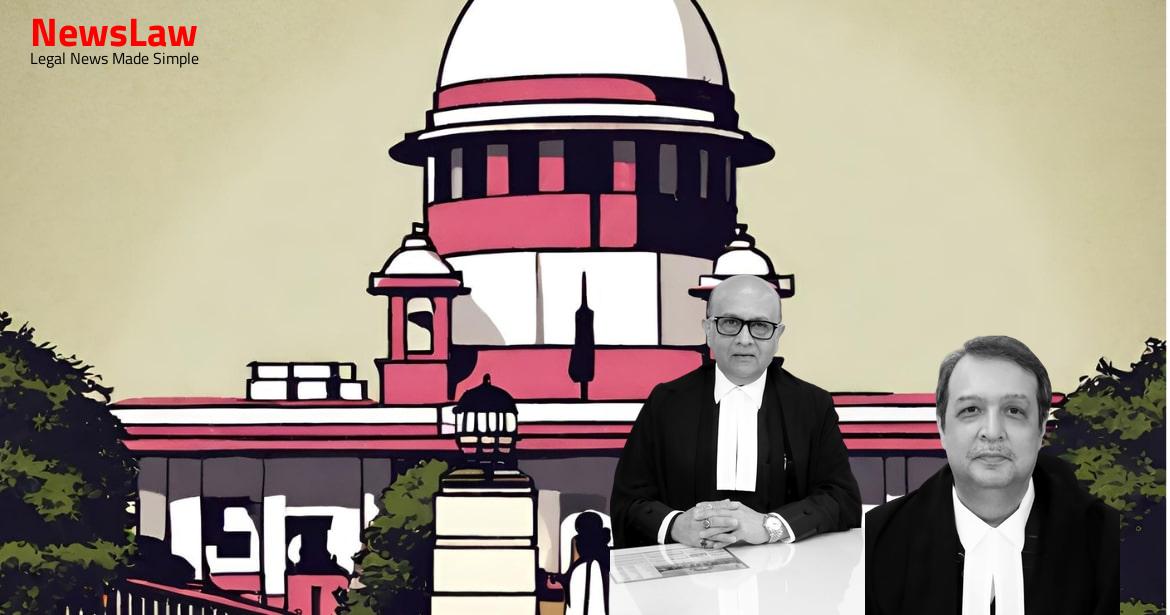Rule of law requires an equal right to access to justice for the marginalised. DoE has filed a criminal complaint dated 04.05.2023 against the appellant – Manish Sisodia for the offences under Sections 3 and 4 of the PML Act. (d) Whether an accused, who allegedly has committed the scheduled offence, can be prosecuted under the PML Act, when the alleged prime accused and the beneficiary of the proceeds of crime, a juristic person, is not arrayed as an accused in the criminal complaint filed by the DoE? •
Also Read: https://newslaw.in/supreme-court/appellants-obligation-under-mineral-auction-rules/
CBI had submitted charge-sheet on 25.04.2023 and the DoE had filed the criminal complaint on 04.05.2023 against the appellant – Manish Sisodia.
Each zone was to have 9-10 wards with a maximum of 27 retail vends which were to be allotted on the basis of auction. o
The standard distribution fee at the rate of 12%, though higher than the fee under the old policy, was necessary to cover the higher level of investment required, setting up of quality checking system, etc. • The new excise policy report prepared by the GoM was accepted by the Excise Department and the Cabinet of the NCT of Delhi.
• The statements of co-accused or other witnesses relied upon by the DoE were extracted and forced by a threat of arrest, as in the case of Magunta Sreenivasulu Reddy, Butchi Babu and Manoj Rai. • The appellant – Manish Sisodia, in his statement dated 14.03.2023, has stated that he had not instructed the Excise Commissioner to expedite the clearance of Indo Spirit’s license. The CBI and DoE have submitted as under: •
Under the old excise policy: o There was no concept of private wholesaler and no concept of zones. Committee Report dated 13.10.2020 was not preferred by the appellant – Manish Sisodia. Reliance is placed on the statement of Sanjay Goel dated 17.01.2023 under Section 161 of the Code, and the letter dated 02.02.2023 by the appellant – Manish Sisodia to the Excise Commissioner.
Also Read: https://newslaw.in/?p=680
Arun Pillai, Abhishek Boinpally, and Sarath Reddy from the liquor group had several meetings with Vijay Nair, who was the middleman, a member of the AAP, and a close confidant of the appellant – Manish Sisodia.
o
A print/photocopy of a 36 page document was made on 16.03.2021 at Hotel Oberoi, Civil Lines, Delhi. Reliance is placed on the statement of Arava Gopi Krishna under Section 164 of the Code. The entire scheme was a pretence to recoup and get bribe and kickback from the big wholesale distributors, who acted as the middlemen and were entitled to fixed commission @ 12% of the landed price on the turnover, but were required to pay a fixed license fee of Rs.5,00,00,000/- (rupees five crores only) to the government. Mahadev Liquor had business in Punjab and the state machinery of Punjab Excise Department was used to arm-twist them. • The kickback or the proceeds of the crime of Rs.100,00,00,000 (rupees one hundred crore only) were received from the liquor group, and used by the associates of the appellant – Manish Sisodia and other leaders of AAP.
Referring to Section 45 of the PML Act, in Vijay Madanlal Choudhary (supra), the three Judges’ Bench has opined that the provision does not require that to grant bail, the court must arrive at a positive finding that the applicant has not committed an offence under the PML Act. The findings recorded by the Court for grant or refusing bail being tentative, will not have any bearing on the merits of the case, and the trial court would proceed and decide the case on the basis of evidence produced during trial without in any manner being prejudiced thereby. The DoE has stated at the Bar, and in the written submissions, that once the quantum of amount used in the election in Goa is ascertained, a decision to consider AAP as an accused under Section 3 will be taken. 45,00,00,000 (rupees forty five crores only) was transferred through Hawala for the Goa election and used by AAP, a political party, which is a juristic person.
Fourthly, the contention of the DoE that generation of proceeds of crime is itself ‘possession’ or ‘use’ of the ‘proceeds of crime’, prima facie, appears to be unclear and not free from doubt in view of the ratio in Vijay Madanlal Choudhary (supra). In particular, paragraph 406 in Vijay Madanlal Choudhary (supra) states: “406… The fact that the proceeds of crime have been generated as a result of criminal activity relating to a scheduled offence, which incidentally happens to be a non-cognisable offence, would make no difference. If the proceeds of crime are in dominion and control of a third person, and not in the dominion and control of the person charged under Section 3, the accused is not in possession of the proceeds of the crime. However, in most common law countries, the fundamental principles do not prohibit application of money laundering offence to self-launderers. The product, that is, the proceeds of the crime, has been defined in Section 2(u) of the PML Act, as a property derived or obtained directly or indirectly by a person as a result of criminal activity relating to a scheduled offence or the value of such property. At the same time, Section 3 of the PML Act is wide and encompassing as it uses the words, “ directly or indirectly ”, with reference to the person involved, and knowingly assists, or knowingly is a party in an offence in relation to the concealment, possession, acquisition, use, projecting or claiming the proceeds of crime as untainted property.
However, we should not be understood to mean that no policy decision would fall foul as to be covered as an offence under Section 7 of the PoC Act.
The appellant – Manish Sisodia states that people do change mobile phones frequently, and old phones need not be retained. • The one time licence fee collected from 14 wholesale distributors was about Rs.70,00,00,000 (rupees seventy crores only). During this policy period, 14 LI licences were given by Excise Department, by raising the license fee for LI to Rs. 75.16 Cr from the license fee of LI (as per Excise department communication dated 11.04.2023) (RUD 34).
Clauses (a) and (b) to Section 7 of the PoC Act apply: (a) when a public servant obtains, accepts or intends to obtain from another person undue advantage with the intent to perform or fail to improperly or to forbear or cause forbearance to cause by himself or by another person; (b) obtains or accepts or attempts to obtain undue advantage from a person as a reward or dishonest performance of a public duty or forbearance to perform such duty, either by himself or by another public servant.
Explanation (2) construes the words and expression, “obtains, accepts or attempts to obtain”, as to cover cases where a public servant obtains, accepts or intends to obtain any undue advantage by abusing his position as a public servant or by using his personal interest over another public servant by any other corrupt or illegal means. • Vijay Nair and the members of the liquor group had meetings on different dates, including 16.03.2021, and had prepared the new excise policy, which was handed over to Vijay Nair. The new policy facilitated big wholesale distributors, whose outpour towards the licence fee was fixed. • Mahadev Liquor, who was a wholesale distributor for 14 small manufacturers, having 20% market share, was forced to surrender the wholesale distributorship licence. Directorate of Enforcement, the appellant therein was granted bail after being kept in custody for around 49 days, relying on the Constitution Bench in Shri Gurbaksh Singh Sibbia and Others v. Vijay Madanlal Choudhary (supra), also held that Section 436A of the Code can apply to offences under the PML Act, as it effectuates the right to speedy trial, a facet of the right to life, except for a valid ground such as where the trial is delayed at the instance of the accused himself.
Case Title: MANISH SISODIA Vs. CENTRAL BUREAU OF INVESTIGATION
Case Number: Crl.A. No.-003352-003352 / 2023



